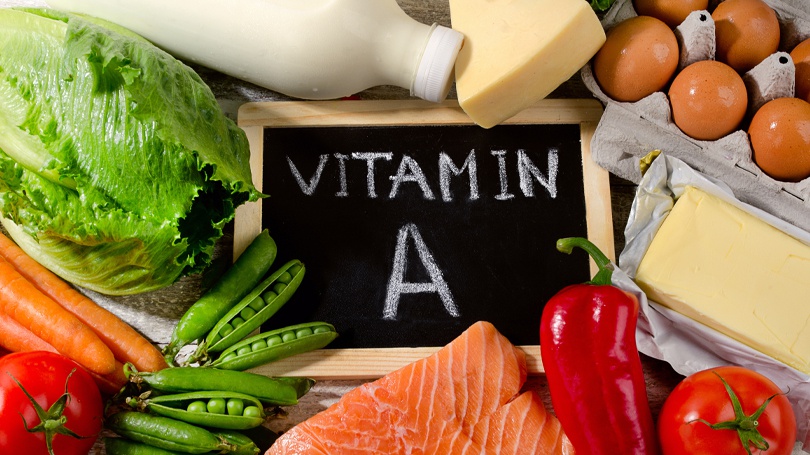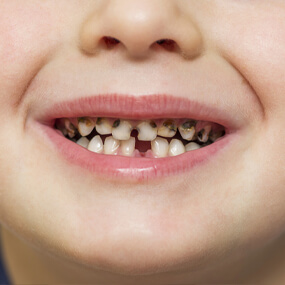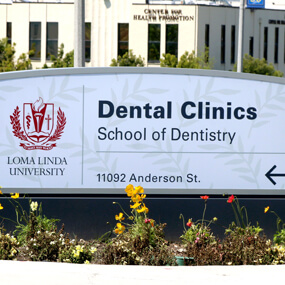Boost Your Oral Health With These 10 Supplements

A balanced diet is key to good overall health, including the health of your teeth and gums. Ideally, you should get all of the nutrients your body needs from the foods you eat and beverages you drink. Most diets are not perfect, however, and a multivitamin or targeted supplement can help balance them.
Multivitamins are the most popular diet supplements in the world, and according to Dr. Howard Sesso at the Harvard School of Public Health, they provide many potential benefits and have no known risks. With that in mind, let us look at 10 core nutrients that boost oral health and which you should target in the foods you eat and the multivitamin you choose to bridge the gaps that will happen on occasion.
- Calcium – Calcium is essential to bone health, and while teeth are not technically bones, they are similar enough to benefit from this mineral as well. Did you know that when your body lacks the required calcium, it compensates by extracting it from your teeth and bones? This can lead to weak teeth and make you more prone to tooth decay. Milk, cheese, and yogurt are great sources of calcium, as are almonds, sunflower seeds, sardines canned with their bones and broccoli, and other leafy greens.
- Vitamin A – Most people associate Vitamin A with strong eyesight, but it is quite essential to tooth and bone growth as well. In addition, Vitamin A is needed by your salivary glands, which produces the saliva that washes away food particles, acids, bacteria, and plaque. If your glands underproduce saliva, it can lead to dry mouth, which makes you more prone to tooth decay, gum disease, and halitosis. Vitamin A is also an antioxidant, which can help to avoid inflammation and various diseases. Sources of Vitamin A include fish, poultry, eggs, milk, various peppers, and certain cereals, such as high-fiber bran flakes.
- Vitamin B – There are eight B vitamins that are important to your health because they all play a role in cell metabolism. The B vitamins particularly relevant to oral health are B2 and B3. B2 also goes by the name riboflavin, and B3 is also known as niacin. Both are integral to preventing and combating inflammation and sores and can be helpful in treating injuries in the mouth. You will find both of these B vitamins in most dairy products, as well as red meat, tuna, salmon, legumes, spinach, and mushrooms.
- Vitamin C – Many people associate Vitamin C with defending against the common cold, but it is an essential nutrient that is used throughout the body to strengthen and repair tissue. If you have a Vitamin C deficiency, your teeth can weaken and become loose, and you will be more prone to periodontal disease. Although rare in the modern age, scurvy is the most famous disease linked to Vitamin C deficiency, and tooth loss is among the most prevailing symptoms of that condition. Sources of Vitamin C include colorful fruits and peppers, tomatoes, broccoli, and many other greens.
- Vitamin D – Vitamin D is strongly associated with calcium, and that is because your body needs Vitamin D in order to absorb calcium efficiently. Even with adequate intake of calcium, you can develop a calcium deficiency if you are Vitamin D deficient. Vitamin D deficiency is not rare. In fact, it is among the most common dietary deficiencies throughout the world, and some studies have estimated the majority of the world population is deficient to some degree. Natural sunlight is the best source of vitamin D, and you only need 15 minutes a day to get the required amount. You can also get it from milk and yogurt.
- Vitamin E – Vitamin E is an antioxidant that plays a key role in your immune system and metabolic processes. It is often associated with preventing and treating gum disease due to its anti-inflammatory properties. In addition to preventing and reducing inflammation, it can prevent and reduce swelling and oxidation. Common sources of Vitamin E include seeds, nuts, vegetable oils, and fish.
- Iron – Your body uses iron for many purposes, and it is an essential component of hemoglobin, which carries oxygen from your lungs and delivers it throughout the system. An iron deficiency can quickly cause a wide range of symptoms, including chronic fatigue, weakness, dizziness, and persistent headaches. An iron deficiency can also affect your oral health because you have a reduced ability to combat infection and inflammation. This can make you more prone to gum disease, even with otherwise good oral hygiene. The best sources of iron include red meat, chicken, turkey, ham, and many seafood items. Plant-based iron, such as from spinach and beans, is less effective but can still help to balance out a diet.
- Potassium – Potassium is an electrolyte that serves many purposes in your body, including regulating your heartbeat. It is also essential to your bones and teeth and is integral in preventing teeth demineralization. An adequate intake of potassium not only strengthens the teeth but helps ward off decay. Potassium is also integral to blood clotting, which comes into play when your gums bleed, or you have a dental surgery performed. Potassium-rich foods include bananas, potatoes, steamed spinach, and broccoli.
- Zinc – Zinc is a trace mineral that should be present at adequate levels in your saliva. It has been proven to starve bacteria and thus inhibit the growth of bacteria that can lead to tooth decay and gum disease. Foods high in zinc include red meat, shellfish, legumes, seeds, nuts, eggs, and many dairy products.
- Phosphorous – Earlier, we mentioned Vitamin D as being integral to the absorption of calcium. There is another component of that process, phosphorous, which is also essential to maximizing the degree to which the calcium you absorb strengthens your teeth and gums. Excellent sources of phosphorous include red meat, poultry, fish, eggs, tomatoes, cucumbers, grapes, citrus fruits, and certain cereals.
A Balanced Diet
Balance your diet for your oral health as well as your overall health. Be mindful that there is a strong link between your overall health and the condition of your teeth and gums. A balanced diet will make your oral hygiene more effective and help to stave off cavities, gum disease, and other dental issues.
Boost Your Dental Health
In addition to a balanced diet and good oral hygiene at home, you need to see your dentist on a regular basis. Jeffrey D. Clark, DDS, is a leading dentist in the Scottsdale region. You can see Dr. Clark for checkups, cleanings, cosmetic treatments, restorative care, and personalized advice on how your diet may be affecting your oral health. Call Scottsdale Cosmetic Dentistry Excellence at 480 585 1853 to schedule your appointment.




